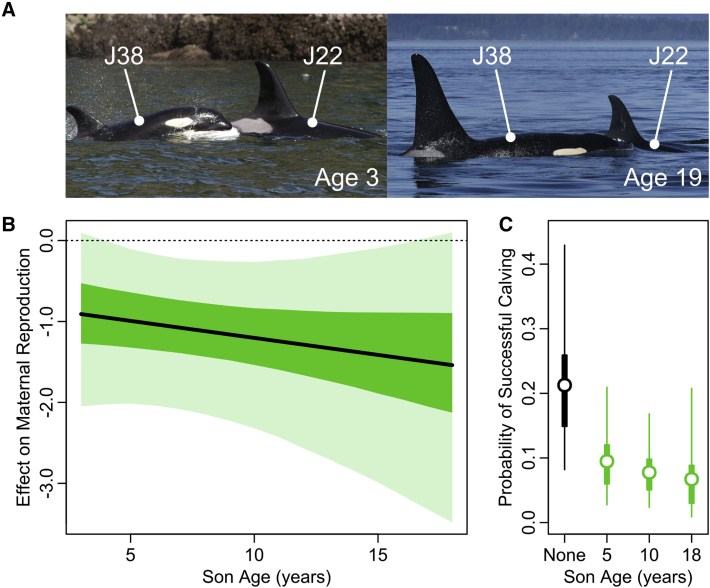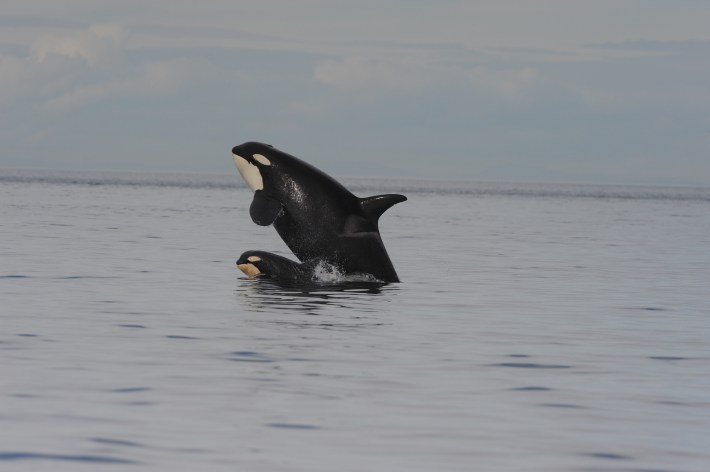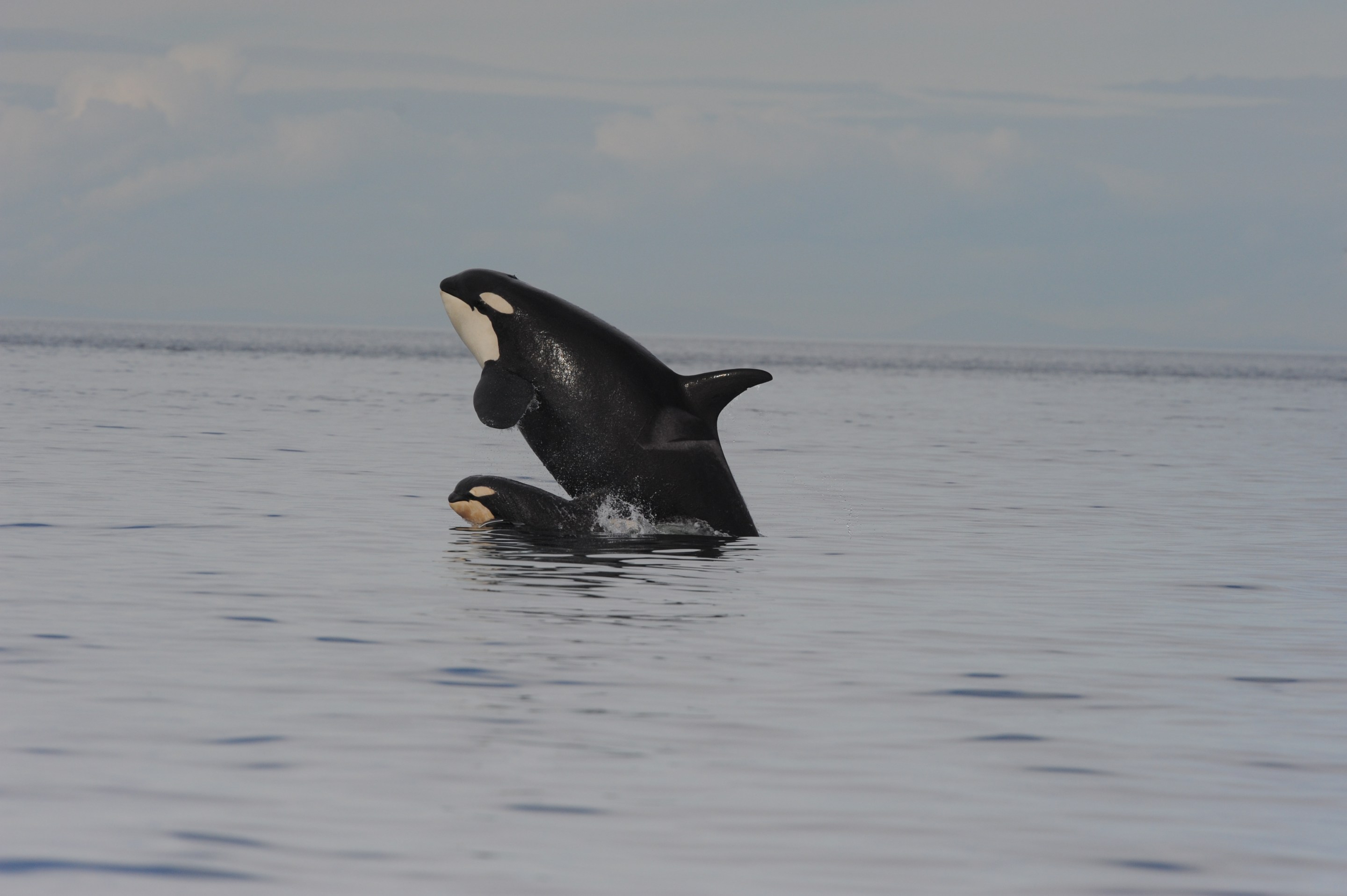All adult sons are large, but large is relative, by which I mean to say that John Mark and David Huckabee would be absolutely dwarfed by L108 and L117, killer whales in the Pacific Northwest who weigh thousands of pounds apiece. Male killer whales reach sexual maturity at around 13 years old, making these two beefy boys essentially full-grown (L108 is 16 years old and L117 is 12 years old). But L108 and L117, like the other large adult sons of the southern resident killer whale population, have never left their mother's side.
Their mother, L54, may take care of her sons for as long as she lives—an understandably exhausting commitment. This is the wonder and burden of bearing a son in this particular population of southern resident orcas. Your boy will be enormous—bigger than most boys on Earth—but you may also have to feed him fishes until you die, according to a new paper published on Wednesday in the journal Current Biology. The study, which analyzes more than 40 years of data from the three pods within the southern resident population, suggests this strategy comes at a huge reproductive cost. In any given year, a killer whale mother with a son was less than half as likely to have another calf that survived at least a year, compared to mothers with only daughters or no offspring.
Killer whale daughters? Young females also receive fish from their mothers, but they are cut off once they mature.

Killer whales roam oceans around the world in populations with distinct dialects and hunting practices, which determine their unique diets. In the Pacific Northwest, the southern resident population exclusively eats fish, especially Chinook salmon, while a transient "Bigg's" population nearby feeds on marine mammals and squid. The Bigg's population, and killer whales worldwide, are doing fine. But the southern resident population has been declining for decades, in part due to an increasingly scarce supply of Chinook salmon. There are only 73 southern residents alive today, and the population is listed as endangered.
The new study focused on the southern resident population, whose large adult sons may need more assistance feeding themselves. The male killer whales may actually be too large to easily catch prey as small and fast as a darting salmon, according to a story in The New York Times. So after the more petite mother whales dive to catch salmon, they'll bite the fish in half and let their sons finish the rest.
These free lunches continue indefinitely, giving their sons a better chance at surviving and reproducing, ensuring the mother's genes will be passed on to future generations, the authors explain. Female killer whales can have only a handful of calves, but male killer whales can sire many more offspring. And though this unusual and rather extreme evolutionary strategy may have paid off in times when Chinook salmon were abundant, it may now backfire.

It is certainly easy to shame these large adult sons for being a lifelong burden to their mothers, for being too big and bulky to catch their own salmon, for inevitably preventing the birth of new calves needed to revitalize the population. Perhaps they remind us of our own human sons—our dreaded Laramies who do not pull their weight around the house and all the other grown men who are excused for awful behavior as if they were still children. But these big boys are poorly equipped living entirely on their own: A 2012 study found male killer whales were eight times more likely to die after their mother's death. And all this care leads to a singular bond between mothers and sons, where full-grown males roll around and swim alongside their mothers as if they were still calves, according to a story in Science. In a sea filled with pollutants and the blaring sounds of ships, isn't this special?
We should hope for a world where it is not necessary to a population's long-term survival for a female orca to reproduce as frequently as is physically possible. A world where it is easy and not potentially disastrous for whales to spoil their large adult whale sons seems like a better world for us all. Half-salmons for everyone!






